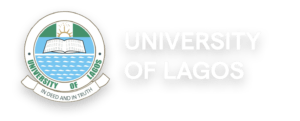On Thursday, June 8, 2023, stakeholders in the study of the environment and related fields including representatives of different state governments gathered for a hybrid discourse themed, “Forest and Carbon Management in Nigeria”, in commemoration of World Environment Day.
The interactive discourse is an initiative of the Land-Use Change and Carbon Emissions (LUCCE) Research Group of the University of Lagos (UNILAG). The LUCCE Research Group comprises Botanists from the Department of Botany and Geographers from the Department of Geography, UNILAG who are concerned with land use change and carbon management in Nigeria. Members are:
- Dr. Fasona Mayowa (Principal Investigator),
- Dr Peter Adegbenga Adeonipekun,
- Prof Oluwatoyin Ogundipe, FAS
- Prof Ademola Omojola, and
- Prof Alabi Soneye.
Held at the GIS Center in the Dr. Daniel Olukoya Central Research Laboratory, UNILAG, the event provided a platform for the LUCCE Research Group to engage with stakeholders, and disseminate its findings following the completion of its Tertiary Education Trust Fund (TETFund) Grant backed research project on Southwest Nigeria.



It featured presentations by a GIS Remote Sensing and GHG Expert, Dr. Oluwole John Pelomo, who posited that forests play critical roles in mitigating climate change by capturing carbon dioxide and storing carbon within soils and forest biomass.
He highlighted ‘deforestation’ and ‘forest degradation’ as two fundamental drivers of forest loss, adding that global deforestation continues to bring about the conversion of forest areas to other uses. Dr. Pelemo mentioned key factors regarding forest loss including commodity-driven deforestation, urbanization, shifting agriculture, forestry production, and wildfires.



He opined that forest conservation is a key tool for climate change mitigation, but integrity issues with forest carbon offsets – such as inflated reference levels need to be addressed in order to maintain the integrity of, and support for, forest-based climate solutions.
Similarly, in his presentation, the Principal Investigator of the project, Dr. Mayowa J. Fasona took participants through the activities of the LUCCE research project on Southwest Nigeria. He pointed out the trends and patterns in land use and land cover change, carbon sequestration potentials of forest and savanna woodland which are predominant across the South Western region of Nigeria.


The LUCCE Principal Investigator noted with displeasure the rapid rate of deforestation in Nigeria and decried the incessant logging activities in the country. According to him, the southwest region is one of the most bio-diverse regions in Nigeria consisting of both the forest and savanna landscapes; although land-use change has become rapid, deforestation is high with a significant impact on the volume of plant biomass and carbon sequestration capacity.
He revealed that the project findings indicate that natural forest and woodlands of the southwest region constitute unique eco-climatic assets with the potential to benefit from international climate (green) financing arrangements including the Green Climate Fund (GCF), Adaptation Fund (AF), Global Environmental Facility (GEF), and Climate Investment Funs amongst others despite the activities of loggers.
Dr. Fasona stressed the need for Nigeria through its recently enacted Climate Act 2021 to promote and adopt nature-based solutions to reducing GHG emissions, set an annual carbon budget as well as a registry with sub-national nodes for capturing REDD+ activities.
Earlier, the Biophysical Survey Lead of the LUCCE field team, Dr. P. A Adeonipekun of the Department of Botany highlighted the importance of the discourse, describing the arguments against deforestation as interesting.

His words, “…it has been argued that we need to vigorously engage in replanting of trees that have been cut down. It has also been argued that any solution to the problem of deforestation in Nigeria must be an approach that incorporates and aggressively targets all aspects that are related to the problem. Government and policymakers need to start thinking of areas of energy alternatives, improved technology, forestry management, economic production, agriculture, and security of the locals that are dependent on the land.”

The discourse which had a question and answer session, offered recommendations including reduction of carbon losses from natural disturbances including wildfires; promptly re-vegetating sites after disturbances, reduction in reliance on forest primary products for internally generated revenue especially by the local government areas, as well as adoption of alternative forest economy.
.

